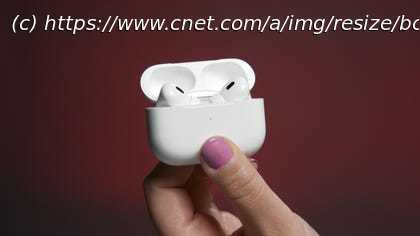If you think you may have signs of hearing loss, you’ll soon be able to use your AirPods as a pair of clinical-grade hearing aids.
If you think you may have signs of hearing loss, you’ll soon be able to use your AirPods as a pair of clinical-grade hearing aids.
In the same breath it announced the iPhone 16 and Apple Watch Series 10, Apple announced this week that its AirPods Pro 2 will soon be getting a hearing aid feature.
Through a software-based upgrade expected to be cleared by the Food and Drug Administration and available this fall, the hearing aid feature for AirPods Pro 2 joins a growing class of over-the-counter devices meant for people with mild or moderate hearing loss, which have only been available without a prescription since late 2022.
While more factors like long-wear comfort and practicality will ultimately determine how AirPods will work as hearing aids, they’re expected to give consumers a more approachable and more affordable choice to treating hearing loss.
In addition to the hearing aid feature, Apple also announced active Hearing Protection and a clinically validated Hearing Test. Here’s everything we know about the major hearing health upgrades. First, you’ll take the Hearing Test
For users with mild to moderate hearing loss, the AirPods Pro 2 will add an over-the-counter Hearing Aid capability. But first, you have to take Apple’s Hearing Test, which is a clinical-grade hearing test based on pure-tone audiometry that takes about 5 minutes to complete with the AirPods Pro 2 and a compatible iPhone or iPad.
People have already been able to upload hearing tests to the Health app to help hack their AirPods into hearing enhancers, but Apple’s inclusion of its own validated test may make it more likely people will use the hearing health features.
Upon completing the test, users will be presented with a summary of their hearing test results, which will provide an audiogram (a graph showing hearing test results) and a number corresponding to hearing loss in each ear, along with a classification and recommendations.






